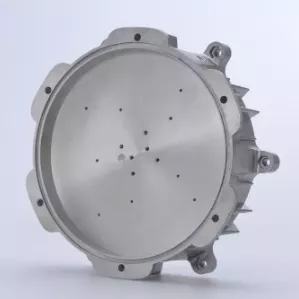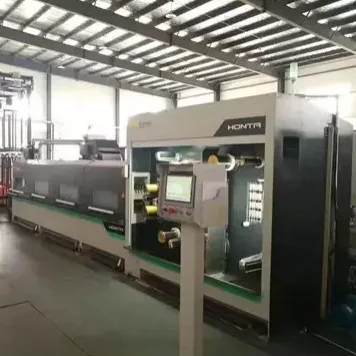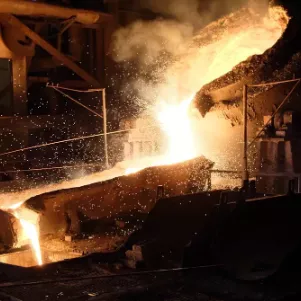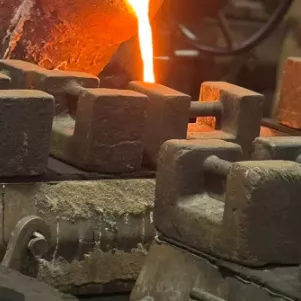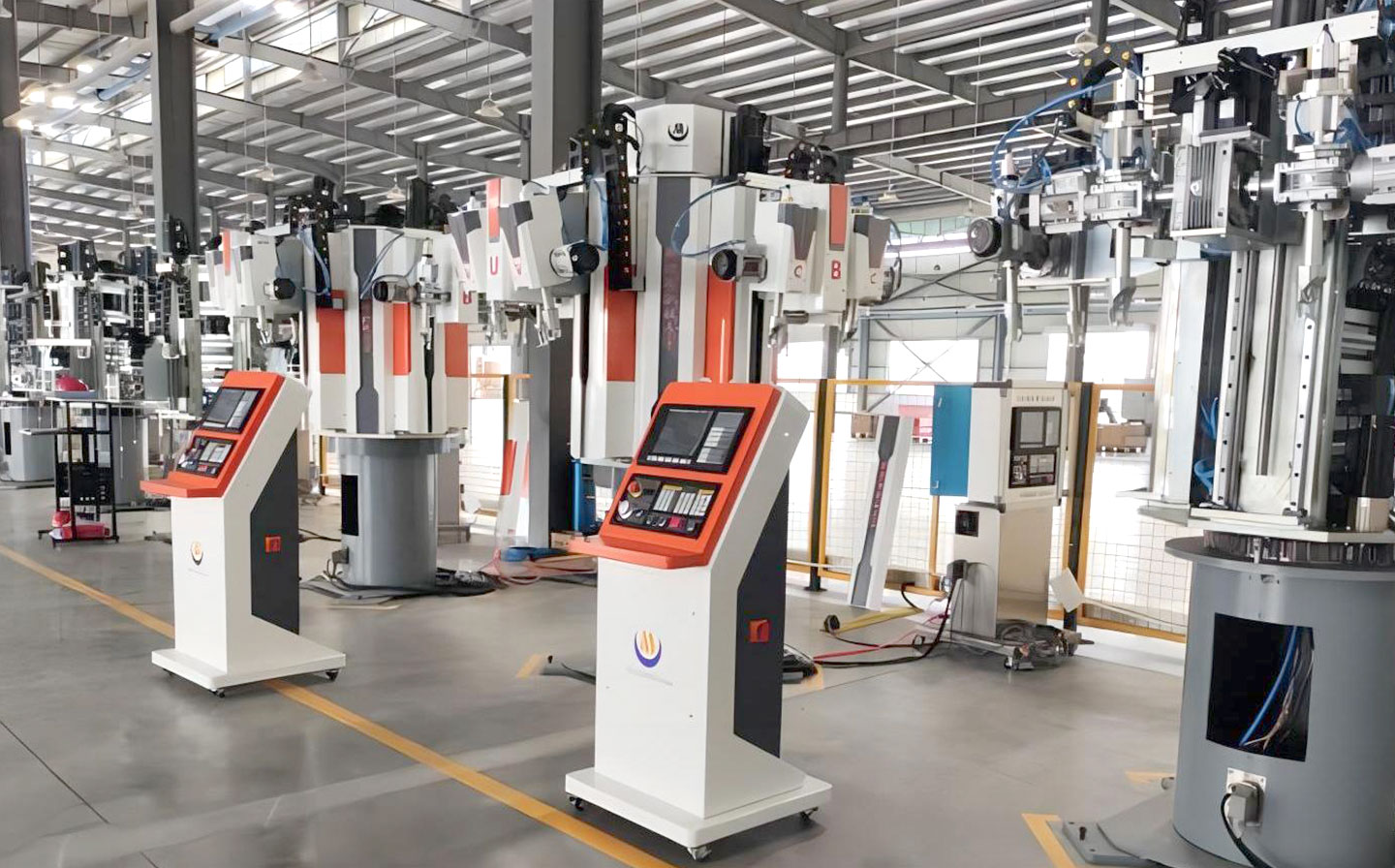

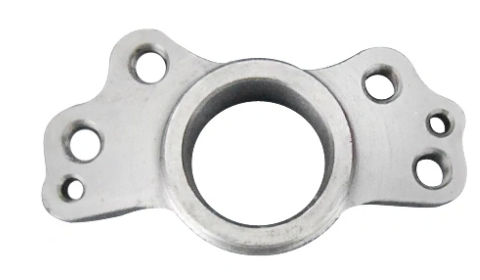
What is Metal CNC Machining
Metal CNC machining is a sophisticated manufacturing process that uses computer-controlled equipment to remove material from metal workpieces with exceptional precision. This advanced technology enables the production of complex parts with tight tolerances for various industrial applications. JOC Machinery specializes in custom CNC machining services for aluminum, stainless steel, carbon steel, and specialty alloys, delivering high-quality components for construction, petroleum, agricultural, and power transmission industries.
Metal CNC Machining Products
Types of CNC Machining Services
CNC machining services can be categorized into various types based on their capabilities and applications.
Here are the main categories JOC Machinery Co., Ltd. offers:
How Metal CNC Machining is Used
Metal CNC machining is utilized across numerous industries for creating precision components essential to equipment performance and reliability. Each application requires specific material properties, tolerances, and surface finishes to ensure optimal functionality. Common applications include:
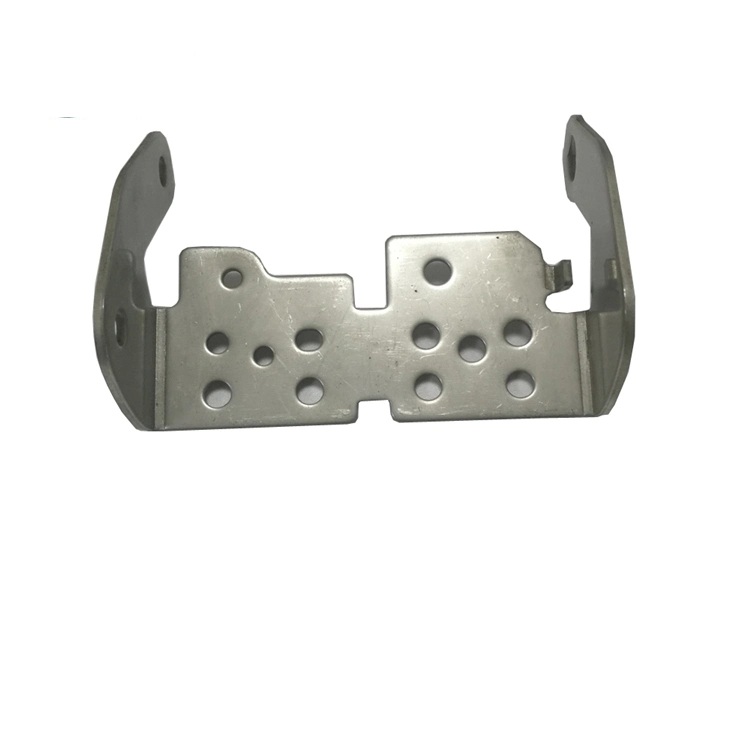
Petroleum Equipment Components
Precision-machined valve bodies, pump components, and flow control devices that withstand high pressure and corrosive environments.
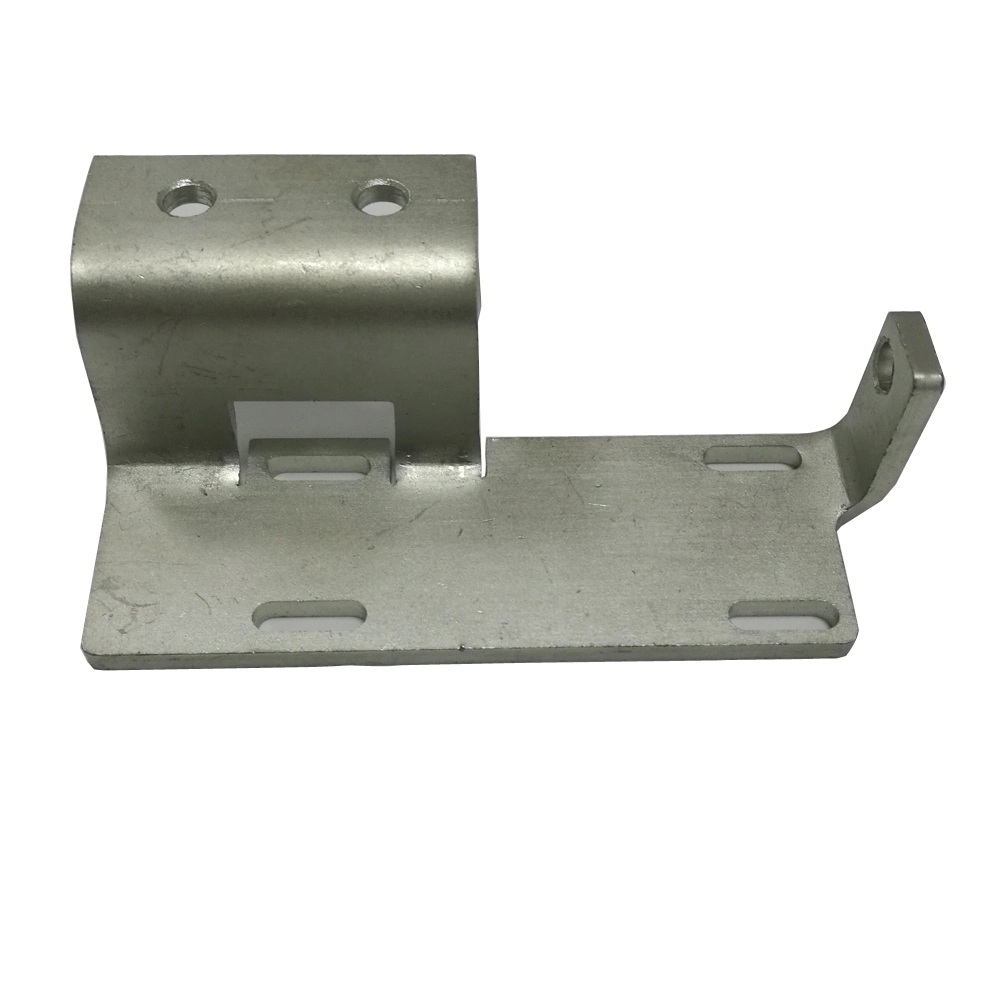
Construction Machinery Parts
Durable hydraulic system components, gear housings, and structural elements that deliver reliability under extreme conditions.

Agricultural Equipment Components
Wear-resistant parts and precision mechanisms that ensure dependable operation in challenging environments.
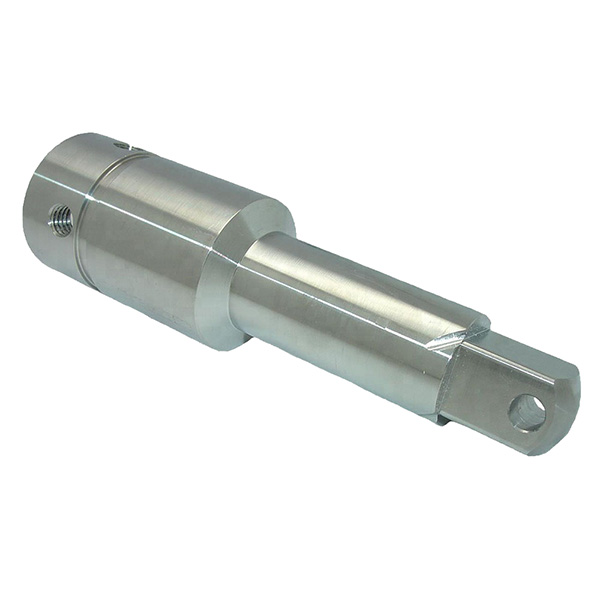
Power Transmission Elements
High-tolerance gear components, coupling systems, and mounting brackets that maintain precise alignment and efficient power transfer.
Our Advantages
Choosing JOC Machinery's CNC machining services provides numerous advantages:
Superior Precision
Our advanced CNC technology achieves tolerances as tight as ±0.005mm, ensuring perfect component fit and optimal performance in your assemblies.
Material Versatility
Expert machining capabilities across aluminum, stainless steel, carbon steel, brass, and specialty alloys to match your exact material requirements.
Production Efficiency
Optimized manufacturing processes reduce lead times and costs while maintaining exceptional quality standards across prototype to production quantities.
Technical Expertise
Over 20 years of manufacturing experience and engineering knowledge ensures optimal design for manufacturability and superior component performance.

Request Custom Machining Solutions
At JOC Machinery, your satisfaction is our primary focus. We are committed to providing you with high-precision CNC machined components and ensuring a seamless procurement experience.
Our technical team is always available to assist with material selection, design optimization, and manufacturability questions. We stand behind our quality with comprehensive inspection reports and a satisfaction guarantee on all machined components.
FAQ
-
Q1: What materials can you machine with your CNC technology?
A1: We offer comprehensive CNC machining services for aluminum alloys (6061, 7075), stainless steel (303, 304, 316), carbon steel, brass, copper, titanium, and various specialty alloys. Our material expertise ensures optimal machining parameters for each specific alloy.
-
Q2: What tolerances can you achieve with CNC machining?
A2: Our precision CNC machining centers can achieve tolerances as tight as ±0.005mm depending on part geometry and material. Our standard production tolerances are ±0.01mm for most applications, with specialized capabilities for ultra-precise requirements.
-
Q3: What is your typical lead time for CNC machined parts?
A3: Lead times vary based on complexity, quantity, and current production schedule. Typical lead times range from 1-2 weeks for standard parts to 3-4 weeks for complex components. We also offer expedited services for urgent requirements.
-
Q4: Do you provide design assistance for CNC machining?
A4: Yes, our engineering team offers comprehensive Design for Manufacturing (DFM) support to optimize your designs for CNC machining. We can suggest modifications to improve manufacturability, reduce costs, and enhance performance.
-
Q5: What quality control measures do you implement?
A5: Our quality control process includes incoming material verification, in-process inspections, and final dimensional validation using CMM technology. All parts are manufactured under our ISO 9001 certified quality management system with full documentation and traceability.
Related Blogs
-
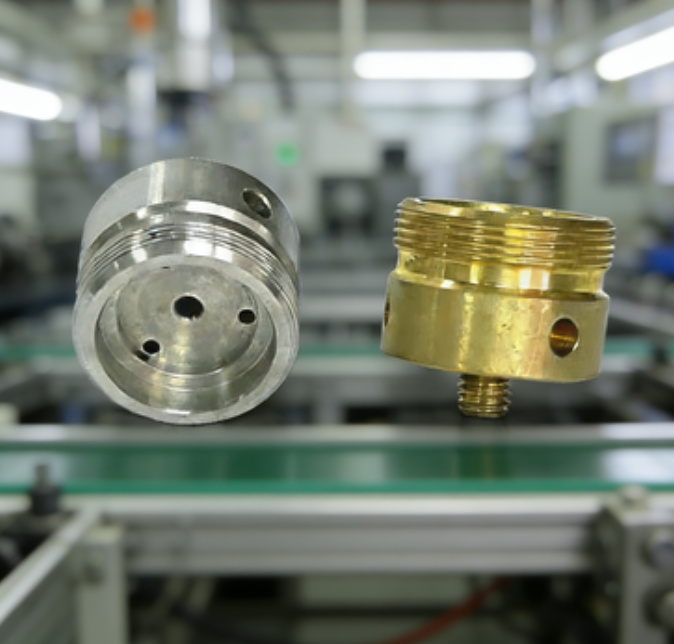 Investment casting uses a wax pattern to make exact metal parts. The process starts with a wax model that looks like the final product. Workers cover the wax with a ceramic material. They take out the wax, which leaves a hollow shell. Hot liquid metal goes into the shell and makes the finished part.
Investment casting uses a wax pattern to make exact metal parts. The process starts with a wax model that looks like the final product. Workers cover the wax with a ceramic material. They take out the wax, which leaves a hollow shell. Hot liquid metal goes into the shell and makes the finished part. -
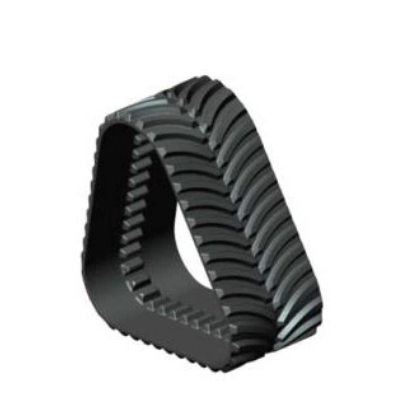 If you need new Rubber Tracks for a mini excavator, compact track loader, skid steer, or farm machine, one thing matters more than anything else: getting the measurements right. Measuring Rubber Tracks is simple when you know what to look for—width, pitch, guide type, and link count—and how to verify those numbers across different machines and wear levels. This guide gives you a quick, featured‑snippet‑style answer, an easy checklist, two data-driven tables, and practical troubleshooting so you can order with confidence and avoid downtime. You’ll also learn how those measurements tie into the undercarriage parts you should inspect or upgrade, including options across Agricultural Machinery Parts and related manufacturing categories you can source in one place.
If you need new Rubber Tracks for a mini excavator, compact track loader, skid steer, or farm machine, one thing matters more than anything else: getting the measurements right. Measuring Rubber Tracks is simple when you know what to look for—width, pitch, guide type, and link count—and how to verify those numbers across different machines and wear levels. This guide gives you a quick, featured‑snippet‑style answer, an easy checklist, two data-driven tables, and practical troubleshooting so you can order with confidence and avoid downtime. You’ll also learn how those measurements tie into the undercarriage parts you should inspect or upgrade, including options across Agricultural Machinery Parts and related manufacturing categories you can source in one place. -
 Keeping an engine healthy starts with one habit: checking the oil correctly. The good news is you can do it in minutes with tools you already have. This guide gives you a quick, featured-snippet-ready answer, a step-by-step checklist, two handy comparison tables, and a plain‑English explanation of what your dipstick is telling you. Then, we connect the task to durable, leak-free oil system components you can upgrade through modern manufacturing—especially Metal Casting and Metal CNC Machining—using a single product hub so you can explore options or request a quote when you’re ready.
Keeping an engine healthy starts with one habit: checking the oil correctly. The good news is you can do it in minutes with tools you already have. This guide gives you a quick, featured-snippet-ready answer, a step-by-step checklist, two handy comparison tables, and a plain‑English explanation of what your dipstick is telling you. Then, we connect the task to durable, leak-free oil system components you can upgrade through modern manufacturing—especially Metal Casting and Metal CNC Machining—using a single product hub so you can explore options or request a quote when you’re ready. -
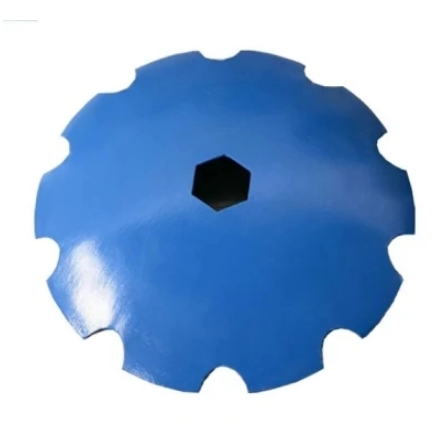 A sharp mower blade gives cleaner cuts, healthier grass, and faster mowing. If you’re standing in front of a grinder wondering what grit flap disc to use, here’s the quick, practical answer—and a complete guide that also connects what you learn to larger Disc Blade maintenance, including Harrow Disc Blade use in agriculture and other Agricultural Machinery Parts. You’ll find a quick answer, a comparison table for grits, simple steps, mistakes to avoid, and how to source or upgrade blades and related parts through a manufacturing partner.
A sharp mower blade gives cleaner cuts, healthier grass, and faster mowing. If you’re standing in front of a grinder wondering what grit flap disc to use, here’s the quick, practical answer—and a complete guide that also connects what you learn to larger Disc Blade maintenance, including Harrow Disc Blade use in agriculture and other Agricultural Machinery Parts. You’ll find a quick answer, a comparison table for grits, simple steps, mistakes to avoid, and how to source or upgrade blades and related parts through a manufacturing partner.















